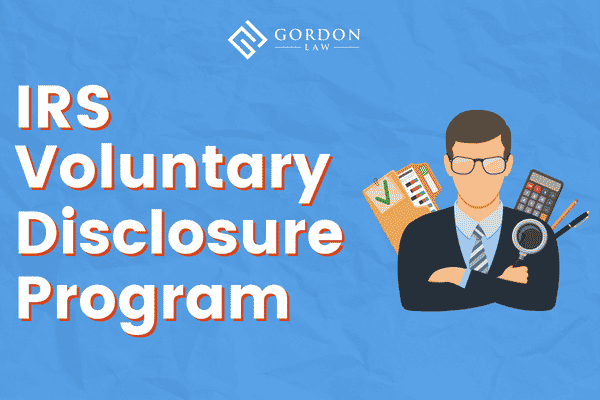IRS Voluntary Disclosure for Offshore Assets
In today's increasingly globalized economy, many U.S. taxpayers hold assets and income abroad. While having offshore accounts and investments is legal, U.S. persons are required to report these foreign assets and income to the Internal Revenue Service (IRS). Failure to comply with these reporting obligations can result in severe penalties, and in some cases, criminal prosecution. Fortunately, the IRS provides voluntary disclosure programs allowing taxpayers to come forward, correct previous non-compliance, and mitigate penalties.
This comprehensive article by Yurydychnyy Marketplace CONSULTANT will delve into the IRS voluntary disclosure process specifically for offshore assets, explaining who needs to disclose, how to proceed, the penalties at stake, and practical tips for successful compliance. If you have undisclosed foreign accounts or income, acting promptly is essential to protect your financial future and legal standing.
Understanding Reporting Requirements for Offshore Assets
U.S. taxpayers must report foreign financial assets and income annually to the IRS. The primary reporting requirements include:
- Filing IRS Form 8938 (Statement of Specified Foreign Financial Assets) when certain thresholds are met;
- Filing Report of Foreign Bank and Financial Accounts (FBAR) using FinCEN Form 114 if aggregate foreign account balances exceed $10,000 at any time during the calendar year;
- Including foreign income on Form 1040 tax returns.
These requirements apply to U.S. citizens, resident aliens, and certain non-resident aliens with domestic tax obligations. Failure to file the necessary forms can trigger substantial civil penalties or criminal charges.
Common Reasons for Non-Compliance with Offshore Reporting
Many taxpayers fail to report foreign assets or income due to a range of factors, including:
- Lack of awareness regarding U.S. reporting requirements;
- Complexity in determining whether foreign accounts meet reporting thresholds;
- Concerns about privacy and bank secrecy laws in foreign jurisdictions;
- Overlooking foreign accounts owned through trusts or foreign entities;
- Concerns about potential penalties discouraging disclosure.
Regardless of the reasons, failure to disclose foreign financial information is the IRS's priority area for enforcement and audit.
What is the IRS Voluntary Disclosure Program?
The IRS Voluntary Disclosure Program is a set of initiatives designed to encourage taxpayers who have not properly reported their foreign income and assets to come forward voluntarily and rectify their tax filings. By initiating disclosure proactively, taxpayers can:
- Avoid criminal prosecution;
- Limit civil penalties;
- Demonstrate good faith compliance;
- Resolve outstanding tax liabilities expeditiously.
The IRS periodically updates and modifies its disclosure programs, with the Offshore Voluntary Disclosure Program (OVDP) being one of the most notable initiatives, active especially from 2009 through 2018, and certain successor programs thereafter.
Who Should Consider IRS Voluntary Disclosure?
Taxpayers who have previously failed to report foreign income, ownership in foreign accounts, or failed to file FBARs, and who want to come into compliance should seriously consider voluntary disclosure. This applies to:
- Individuals with offshore bank accounts, brokerage accounts, or mutual funds;
- Owners of foreign corporations or partnerships;
- Beneficiaries of foreign trusts or estates;
- Persons with foreign-issued life insurance policies or annuities;
- Taxpayers with foreign rental income or capital gains not previously reported.
Prompt voluntary disclosure is crucial to avoiding harsher penalties and potential criminal liability rendered by IRS enforcement actions.
Steps to Initiate the Voluntary Disclosure Process
Initiating voluntary disclosure involves a multi-step process that generally includes:
- Consulting a qualified tax attorney or tax professional with expertise in offshore disclosures;
- Gathering comprehensive documentation regarding foreign accounts, income, and related tax filings;
- Preparing amended tax returns and FBAR filings for previous years as required;
- Submitting the voluntary disclosure submission in accordance with IRS guidelines;
- Cooperating fully with IRS requests and providing any additional information;
- Making any necessary payments to cover unpaid taxes, interest, and negotiated penalties.
Following this roadmap ensures a smoother interaction with the IRS and enhances the likelihood of a favorable resolution.
Penalties for Failure to Report Offshore Assets
The IRS imposes significant civil penalties for failure to report offshore accounts and income, including:
- FBAR penalty of up to 50% of the balance in an unreported foreign account for each violation;
- Substantial understatement of income or failure to file penalties;
- Accuracy-related penalties of 20% of the underpayment attributable to negligence or disregard of rules;
- Criminal penalties, including fines and imprisonment for willful violations.
The costliest option is to remain silent. Non-disclosure often triggers aggressive IRS audits, investigations, and potential prosecution.
Advantages of Voluntary Disclosure Before IRS Enforcement
Choosing to disclose voluntarily offers several advantages:
- Significantly reduced penalties compared to enforcement outcomes;
- Avoidance of criminal charges in many cases;
- Improved peace of mind by resolving outstanding tax liabilities;
- Ability to negotiate terms for payment plans or penalty abatement;
- Restoration of good standing with the IRS and improved compliance record.
Common Misconceptions About Voluntary Disclosure
Many taxpayers hesitate to engage in voluntary disclosure due to misunderstandings such as:
- "I can’t afford to pay the back taxes and penalties." — The IRS often offers payment plans.
- "The IRS will automatically prosecute me if I disclose." — Voluntary disclosure often prevents criminal prosecution.
- "I’m too late to participate in voluntary disclosure." — The IRS continues to accept voluntary disclosures but terms vary by program and timing.
- "I don’t have foreign income, so I don’t need to report foreign accounts." — Reporting is required even if foreign accounts do not generate income.
- "My foreign assets are held in a trust or foreign entity; I’m not responsible." — In many cases, U.S. persons must report ownership or beneficial interests.
How Yurydychnyy Marketplace CONSULTANT Can Assist You
Navigating the complexities of IRS offshore disclosure programs is challenging and requires specialized expertise. Our team at Yurydychnyy Marketplace CONSULTANT offers comprehensive legal and tax assistance, including:
- Assessment of your offshore asset reporting status;
- Guidance on the appropriate voluntary disclosure program;
- Preparation of amended tax returns and FBAR filings;
- Representation in negotiations and communications with the IRS;
- Support in penalty mitigation and payment arrangements;
- Ongoing compliance planning for future years.
Timely and professional help is essential to safeguard your legal and financial interests. We encourage anyone with undisclosed offshore financial interests to contact us through the communication links in our bio or send a private message for confidential consultation.
Best Practices for Maintaining Offshore Compliance
After successfully completing voluntary disclosure and settling past obligations, maintaining compliance is critical. Best practices include:
- Keeping accurate records of all foreign accounts, income sources, and financial transactions;
- Filing timely and complete tax returns including Form 8938 and FBAR;
- Seeking regular advice from tax professionals experienced in international tax law;
- Monitoring changes in IRS policies and regulations regarding foreign assets;
- Using secure methods for storing sensitive financial information.
Recent Updates in IRS Offshore Disclosure Programs (As of 2025)
The IRS continues to evolve its approach to offshore compliance. As of 2025, notable developments include:
- Enhanced data sharing agreements between the IRS and foreign tax authorities under the Common Reporting Standard (CRS);
- Increased scrutiny on cryptocurrency held in offshore accounts;
- Refinements to penalty structures encouraging timely voluntary disclosures;
- Expanded outreach efforts to educate taxpayers on their reporting obligations.
Staying informed of these changes will help taxpayers remain compliant and avoid costly enforcement actions.
Voluntary disclosure to the IRS regarding offshore assets is a crucial step for taxpayers seeking to rectify prior non-compliance. Acting proactively allows individuals and businesses to limit penalties, avoid criminal exposure, and establish a transparent relationship with tax authorities. The complexities surrounding international tax reporting demand expert assistance, and Yurydychnyy Marketplace CONSULTANT is dedicated to providing knowledgeable, confidential, and effective support for all clients. The costliest option is silence; therefore, taxpayers with undisclosed offshore financial interests are encouraged to reach out promptly through available communication channels for professional guidance.
Ensuring compliance with IRS offshore reporting regulations is not only a legal necessity but also a safeguard for financial security and peace of mind. With the evolving global tax landscape, staying ahead of disclosure requirements is more important than ever.
Yurydychnyy Marketplace CONSULTANT focuses on providing comprehensive legal and tax advisory services tailored to U.S. taxpayers with international financial interests. Our multidisciplinary team, comprising attorneys, tax advisors, and compliance experts, ensures meticulous handling of voluntary disclosures and subsequent filings. Contact us for professional support to navigate the complicated offshore reporting environment.































